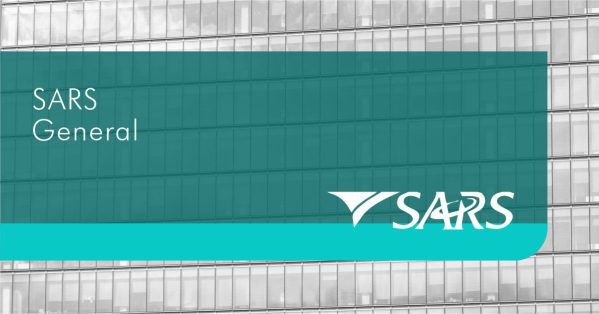CSARS v Grand Azania (Pty) Limited
SARS launched a liquidation application against Grand Azania in July 2021 based on section 344 of the Companies Act. This section provides that a company may be wound up if it cannot pay its debts. SARS launched a liquidation application claiming that Grand Azania owes SARS and cannot pay its debts. SARS relied on a forensic report indicating that the sole director and shareholder of Grand Azania benefited from gratuitous payments from VBS bank. SARS issued audit findings, estimated assessments, and a finalization audit letter, but Grand Azania did not respond or lodge an objection.
The High Court ruled that Grand Azania should be provisionally wound up and:
-
- all persons who have a legitimate interest are called upon to put forward their reasons why this Court should not order the final wing-up of the respondent company on 24 April 2023 at 10:00
- a copy of this order be forthwith served on the respondent company at its registered office and be published in the Government Gazette and the Star newspaper; and
- a copy of this order be forthwith forwarded to each known creditor by prepaid registered post.
You’ll be able to read the judgment here.
Siyandisa Trading (Pty) Ltd v CSARS
Tax Law and Evidence: Depreciation allowance, finance charges, the understatement penalty
Siyandisa is appealing against SARS’ income tax assessment for the 2011 and 2012 tax years. Three issues are in dispute: the disallowance of a depreciation claim, the disallowance of a deduction of finance charges, and the imposition of an understatement penalty. The Tax Court confirmed SARS’ assessment, but the appellant argues it relied on the wrong legislative provision.
The High Court dismissed the appeal and found that the appellant persistently failed to substantiate the market value of the tools and equipment and to provide the necessary proof underpinning the claim regarding the finance charges; it cannot be said that SARS misdirected itself in holding that the appellant was grossly negligent in persisting in its position. Accordingly, the Tax Court was correct not to interfere with the understatement penalty.
You’ll be able to read the judgment here.
CSARS v Khagiso Afrika Holdings (Pty) Ltd and Others
Procedure: Whether the provisional order against some of the respondents should be made final.
During the Covid-19 pandemic, Khagiso Afrika Holding was awarded a tender by SAPS for the procurement of PPE. It issued approximately 23 invoices to SAPS without charging any output VAT on the supply of masks. SAPS paid R134,470,900.00 into Khagiso Afrika’s bank account, and Khagiso Afrika funneled about R108,873,194.50 of that amount to other respondents. SOA submitted its VAT201 return declaring a total output VAT of R47,961.00. Still, SARS calculated the potential VAT liability payable from the payment above from Khagiso Afrika to be R4,113,691.17, excluding penalties and interest. Accordingly, a provisional preservation order was granted, and a curator bonis was appointed, and Respondent 22 provided sufficient security to satisfy any potential SARS tax assessment.
False declaration on VAT 201 tax returns constitutes tax evasion. SARS calculated potential VAT liability to be over R12 million and has requested a preservation order to prevent the company from disposing of, removing, or concealing assets. SARS suspects that the company has been using multiple layers of transfers to dispose of funds and has flagged several examples of this scheme. The document also lists assets owned by the company that may be subject to the preservation order.
The High Court confirmed the provisional preservation order granted on 25 October 2021 against the respondents with costs.
You’ll be able to read the judgment here.
Henque 3935 CC t/a PQ Clothing Outlet (in Business Rescue) v CSARS
Can SARS set off a company’s tax liability in business rescue against the VAT refunds due to the company in circumstances where the tax liability concerns a period before the company entered into business rescue but was only determined after the company had entered into business rescue?
The applicant, Henque 3935 CC, said that it’s against the law for SARS to do that and asked the court to declare that the 2017 additional assessment of its tax liability, which was dated April 4, 2018, is a pre-business rescue debt.
Additionally, they want the court to prohibit SARS from collecting the 2017 additional assessment by using set-off against Henque’s VAT (Value Added Tax) refund payments from February 2018 up to the present.
The Constitutional Court found that the 2017 additional assessment is not a pre-business rescue debt, and the application was dismissed with costs.
You’ll be able to read the judgment here.
Dankie Oupa Delwery CC v CSARS
Customs and Excise Act, 1964.
Liquidation and Tax – Inability to pay debts: Whether the applicant made a case for the liquidation of the respondent.
The Court contemplated whether the respondent was correct in determining that:
- The physical address is a requirement for a valid tax invoice in terms of Schedule 6, Part 3, Note 6 (d) read with section 75(1C) and (iii) of the Customs and Excise Act No.91 of 1964 (the Act)
- The applicant’s record-keeping was insufficient
- It did not act irregularly in failing to allow the applicant the opportunity to prove
- The applicant’s logbooks were legally not compliant, or they contained insufficient details regarding the usage of fuel for eligible purchases, and
- There were no exceptional circumstances for the Court to depart from the general rule in section 8(1)(c) of the Promotion of Administrative Justice Act, 2000 (PAJA).
The relief sought by the applicant was to set aside the Commissioner’s decisions, as stated above.
Regarding the physical address requirement, the court found that the meaning of address in the relevant Notes to the Act refers to the material or postal address of the purchaser or both thereof.
You’ll be able to read the judgment here.

